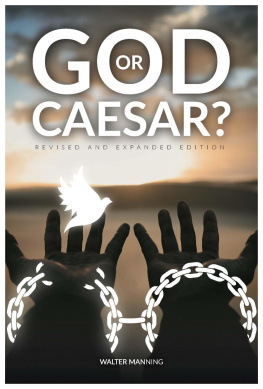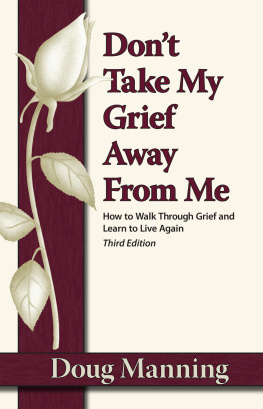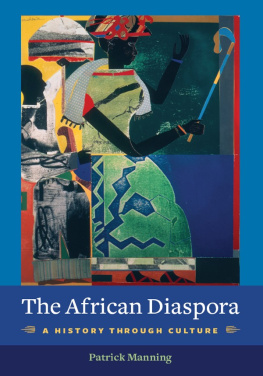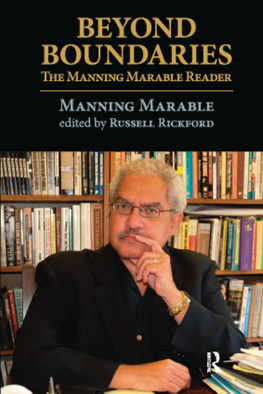GOD or CAESAR?
A Biblical and Political Perspective of America
by Walter Manning
"Render unto Caesar the things that are Caesar's ,
and unto God the things that are God's."
(Matthew 22:21, Mark 12:17 and Luke 20:25)
Preface
T he purpose for writing this book is threefold:
1) To provide historical information,
2) To stimulate thought, and
3) To ignite interest in Americas future.
By employing a biblical worldview to underpin the concepts, opinions and conclusions, the author provides a persuasive perspective that is chronologically arranged with respect to Americas past and future.
Numerous references are made to historical and current events. The primary objective of which is to provide necessary and sufficient information in support of the premise that America was founded and established on Judeo-Christian precepts, principles and values.
The mention of any person by name is intended to help the reader associate, identify and readily understand the time and event(s) being discussed, not to criticize or besmirch any individual or religion.
Whereas there are many solid biblical churches in America that fervently preach the Gospel of Christ, at no point is the author painting every church with the same color and brush. The term church, as used herein, refers to the collective body of churches, or overall body of believers, and is not referring to a specific church or denomination, per se.
All Scripture quotations taken from The Holy Bible, New International Version Copyright 1973, 1978, 1984, 2011 by Biblica, Inc. Used by permission. All rights reserved worldwide.
Introduction
One could readily contend the foundational ideas leading to the notion that all men are created equal, that they are endowed by their Creator with certain inalienable rights, that among these are life, liberty and the pursuit of happiness was birthed in the mind and spirit of man as a result of the life, death and resurrection of Jesus Christ. Furthermore, the pathway leading from then until now is a long, circuitous route. But, it is one that the hand of Providence has never forsaken.
America did not suddenly emerge from beneath the rich soil of the land. Nor did she miraculously appear on pieces of parchment penned by our Founding Fathers. Not at all! Instead, she was an idea that was conceived in the minds of godly, thinking men long before she was birthed and scribed on the tablets of history.
More recently, the thoughts of many concerned Americans are churning with alarm regarding the state of our nation. On the one hand, America shows all the signs of being strong and prosperous. While on the other, a sharp divide is threatening to pierce her heart, steal her soul and completely restructure her democratic form of government.
Many now believe that the United States is facing an existential threat on multiple fronts. The underlying cause of which (in this authors opinion) is her decision to willingly bow and pay tribute to Caesar, rather than to worship the GOD of Abraham, Isaac and Jacob.
It seems patently clear that her steep descent from riches, peace and prosperity to a dysfunctional government generating insurmountable debt, coupled with increasing moral and spiritual depravity is courting a disaster not unlike what happened to ancient Israel, centuries ago.
CHAPTER1
Historical Overview
O rigins of Democracy
One could legitimately claim that the roots of the notion of democracy are directly traceable back to the ancient civilizations of Rome and Greece, and continuing through the Protestant Reformation and use of the printing press.
Additionally, it could easily be demonstrated that those individuals who had the strongest influence on the development of a democratic-republican form of government were men such as: Thomas Hobbes, Voltaire, Montesquieu and Rousseau.
However, there are many who would contend the annals of history strongly confirm the single most influential source of such governing notions and ideas came from the pen and tongue of a seventeenth century Englishman by the name of John Locke, whose ideas had a prodigious impact on Thomas Jefferson, the drafter of the American Declaration of Independence.
***
A t this juncture, it would be beneficial to distinguish the elusive difference between the concept of freedom versus liberty . Whereas language continues to evolve with time, so does the long-standing discourse regarding the distinctions between freedom and liberty.
Furthermore, it is important to recognize and understand that even though these two notions are often randomly interchanged, their subtle differences (should) preclude them from being indiscriminately interchangeable.
According to Websters Dictionary, one definition for liberty is the quality or state or being free , thereby aiding in its use as a synonym for freedom . However, other definitions are subtler, in that they imply liberty is a form or subset of freedom. In other words, liberty is freedom within certain bounds.
In contrast, as defined by Websters Dictionary, the notion of freedom is primarily (and simply) in terms of the lack of restraint or barriers to action.
Otherwise being translated, the word freedom is used to mean free from something, whereas liberty is used to connote having the freedom to do something.
Even though both freedom and liberty refer to the quality or state of being free, Thomas Jefferson's use of these terms almost always reflected the aforementioned distinctions.
***
A plethora of historical records and documents indisputably authenticate that the moral roots of the United States are deeply intertwined with Judeo-Christian doctrines, precepts and values, most particularly those recorded and codified in the Christian Holy Bible. That is truth simply put; and, no amount of historical revisionism can eradicate its veracity.
However, when men deliberately and willfully choose to ignore the truth, the effect is essentially the same as if it had been erased, unless and until it is resurrected and brought to light, which some refer to as a spiritual revival.
At this point, lets pause to take a brief, imaginary journey back in time, and with the use of wide strokes, glide across the pages of history in order to set the stage for where America was, is and how she got here as a nation.
Herein, its important to keep in mind that God has always had a plan and purpose for the establishment of America. She was to become a shining city on a hill, a beacon of light and hope for the world to see.
Americas Conception
Depending upon where a stake is inserted into the terrain of history, one could readily contend that Jesus death and resurrection carved a pathway leading from Calvarys Cross into the hearts of men, wherein the realities of liberty and freedom were first considered possible.
Next page














